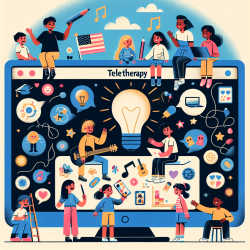Understanding the Psychological Impact of Vision Loss
Profound vision loss can significantly affect psychological well-being, particularly in younger individuals. A recent study published in Clinical Ophthalmology highlights the profound psychological and psychosocial effects of vision loss due to Leber’s hereditary optic neuropathy (LHON) in adolescents, young adults, and middle-aged adults. The study found that nearly half of the participants met the criteria for depression after vision loss, with significant negative impacts on interpersonal interactions and career goals.
Key Findings from the Research
- 49.5% of participants met depression criteria after vision loss.
- Negative impacts on interpersonal interactions (median IR = -5) and career goals (median IR = -6) were observed.
- 68% of subjects used electronic vision aids, which were associated with higher social well-being.
- 52.4% of participants derived emotional support from their ophthalmologist.
Implications for Practitioners
For practitioners, these findings underscore the importance of a holistic approach to care that addresses both the physical and psychological needs of patients experiencing vision loss. Here are some strategies practitioners can implement:
- Encourage the Use of Low Vision Aids: Electronic vision aids have been shown to enhance psychological well-being. Practitioners should recommend these tools to patients to improve their quality of life.
- Provide Emotional Support: Ophthalmologists and other healthcare providers can play a crucial role in offering emotional support, which can significantly impact patients' psychological adaptation to vision loss.
- Facilitate Access to Mental Health Services: Given the high prevalence of depression, referrals to mental health professionals should be considered as part of comprehensive care.
Encouraging Further Research
While this study provides valuable insights, further research is needed to explore additional resources and interventions that can enhance the quality of life for individuals with vision loss. Practitioners are encouraged to stay informed about the latest research and incorporate evidence-based practices into their care.
To read the original research paper, please follow this link: Profound vision loss impairs psychological well-being in young and middle-aged individuals.










